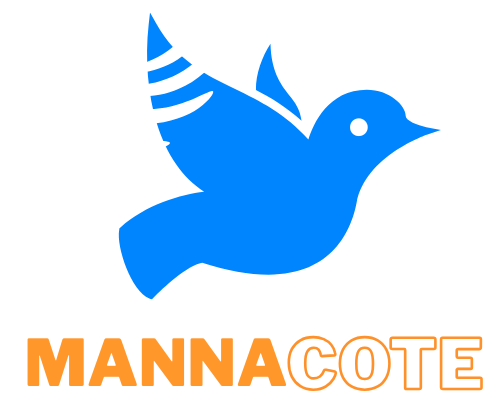10 Shocking Facts About Internetchocks You Shouldn’t Ignore Today
What are Internetchocks?
The term internetchocks refers to any disruptions, slowdowns, or bottlenecks that hinder your internet speed or performance. Imagine your data trying to flow through a pipe, and internetchocks are the clogs that slow everything down. This phenomenon affects how smoothly you browse, stream, or conduct business online.
Origin of the Term
While not yet an officially recognized technical term, internetchocks is a portmanteau of “internet” and “choke,” indicating situations where internet speed or connectivity is being ‘choked’ or restricted, intentionally or otherwise.
Understanding Digital Traffic Slowdowns
Bandwidth Limitations
Bandwidth is the maximum rate at which you can download or upload data. When your demand exceeds your limit, you’re bound to experience internetchocks.
Data Throttling by ISPs
Internet Service Providers (ISPs) sometimes reduce your speed during peak times or once you’ve crossed a data threshold. This practice, known as throttling, is a significant contributor to internetchocks.
Top Causes of Internetchocks
Peak Usage Times
During evenings or weekends, many users share the same local bandwidth, leading to slowdowns.
Hardware & Router Issues
Old or poorly configured routers can restrict internet flow. Position, firmware updates, and signal interference all matter.
Outdated Software or Firmware
Old operating systems or apps that are not optimized can consume excessive bandwidth, causing disruptions.
Impact of Internetchocks on Daily Life
Online Learning & Remote Work
Zoom calls dropping? Files not uploading? Internetchocks make remote work and e-learning frustratingly inefficient.
Gaming & Streaming
Lag in gaming and buffering in Netflix are classic signs of choked bandwidth.
E-commerce Transactions
Slow checkouts or timeouts can lead to abandoned carts and lost revenue for online stores.
Types of Internetchocks Explained
Temporary Lags vs Persistent Slowdowns
Some internetchocks last a few minutes; others can plague you for days. Identifying the type helps with troubleshooting.
Localized vs Widespread Disruptions
Issues might be local to your home or involve larger regional ISP disruptions. Websites like DownDetector can help you differentiate.
How to Identify Internetchocks
Tools to Measure Speed
Use tools like Speedtest.net or Fast.com to verify if you’re getting the speed you pay for.
Symptoms of a Choked Connection
Slow loading websites, frequent buffering, lag in video calls, and inconsistent download speeds are classic signs.
Internetchocks in Urban vs Rural Areas
Infrastructure Disparities
Urban areas tend to have better cabling, fiber optics, and 5G coverage, while rural regions may rely on outdated DSL.
Internet Access Inequality
This digital divide deepens socio-economic gaps, affecting education, commerce, and healthcare access.
Role of ISPs in Internetchocks
Fair Use Policies
Most ISPs have ‘fair use’ clauses that allow them to slow your connection during high-demand periods.
Service Tier Differences
Not all internet packages are created equal. Lower-cost plans often come with lower prioritization.
Fixing Common Internetchocks
Resetting Devices
Often, simply unplugging and restarting your modem and router can fix temporary issues.
Upgrading Routers & Cables
Modern routers with mesh networking and gigabit Ethernet cables can significantly enhance speed.
Optimizing Device Settings
Turn off auto-sync features, background apps, and cloud backups during important sessions.
How to Prevent Future Internetchocks
Scheduled Maintenance
Regular updates and maintenance can ensure consistent performance.
Proper Network Configuration
Use Quality of Service (QoS) settings to prioritize work-related data over background tasks.
Internetchocks and Cybersecurity
How Malware Affects Network Speed
Viruses and spyware can hijack your bandwidth, slowing down your internet experience.
Securing IoT Devices
Poorly protected smart devices can become gateways for cyber threats that compromise network speed.
The Business Cost of Internetchocks
Lost Revenue
Online stores and service providers can lose sales due to poor internet performance.
Reduced Productivity
Teams using cloud-based tools or conferencing software suffer delays and miscommunications.
Mobile Networks and Internetchocks
4G/5G Congestion Issues
Even mobile users experience internetchocks in crowded areas like stadiums or festivals.
Carrier Data Management
Carriers may slow speeds after a certain amount of data use, known as data deprioritization.
Global Trends in Internetchocks
Case Studies from Different Countries
Some nations like South Korea and Singapore boast seamless internet, while others still struggle with basic infrastructure.
Digital Divide and Speed
The disparity in internet quality globally highlights the urgent need for equal access to fast, reliable connections.
AI and Internet Optimization
Smart Routing & AI Algorithms
AI-driven tools can redirect traffic efficiently, reducing internetchocks.
Predictive Traffic Management
Future systems will predict congestion and preemptively resolve bottlenecks.
Future Outlook: Will Internetchocks Ever Go Away?
Technological Innovations
Fiber optics, satellite internet (like Starlink), and 6G will reduce friction in internet delivery.
Policy and Infrastructure Investments
Government-backed initiatives for rural broadband can help eliminate geographic disparities.
FAQs
1. What are internetchocks and why do they happen?
Internetchocks refer to interruptions or slowdowns in your internet connection, usually caused by bandwidth overload, outdated hardware, or network congestion.
2. How can I tell if my internet is choked?
Look for signs like buffering videos, slow-loading websites, or delays in uploads. Speed tests can confirm a reduced bandwidth.
3. Do all ISPs throttle internet speed?
Many do, especially after certain data limits are reached or during peak hours. Check your service agreement.
4. Can internetchocks affect my online job?
Absolutely. Lag in communication or slow uploads can impact productivity, professionalism, and even income.
5. How do I fix frequent internetchocks at home?
Try resetting your router, upgrading equipment, limiting background data use, and contacting your ISP for better plans.
6. Are there tools to detect internetchocks?
Yes. Use Speedtest.net, PingPlotter, or your router’s diagnostic tools to track real-time internet health.
Conclusion
Internetchocks are more than just minor annoyances—they can disrupt your work, entertainment, and daily communication. Understanding their causes and fixes empowers you to take control of your digital life. From better hardware to smarter network strategies, you can stay ahead of the choke.







